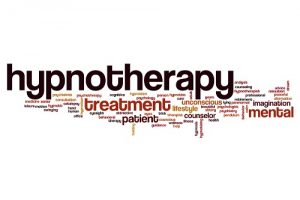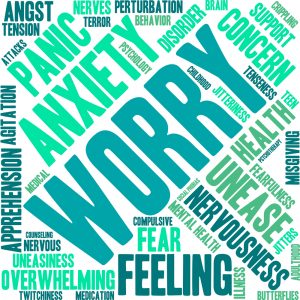I. Introduction
Behavioral change is a complex phenomenon that encapsulates the interplay between psychological principles and practical applications, forming a critical area of study within both psychology and behavioral therapy. At its core, the process involves understanding how individuals can modify their behaviors to improve health, productivity, or overall well-being. As outlined in foundational texts, behavior therapy has evolved from historical approaches to incorporate various techniques aimed at addressing problem behaviors using scientifically validated methods (Bufford et al., 1981). Furthermore, this process is not solely limited to human application; it extends into animal training and performance enhancement, highlighting the broader implications of behavioral psychology across species (McBride et al., 2012). By examining the psychological underpinnings that drive behavioral change, this essay will explore the intricate dynamics involved, providing insights into effective strategies for facilitating meaningful transformations in diverse contexts.
I think it is also important to emphasize the role habits, both mental and physical can play on conscious decisions to change. The subconscious and all the subjective elements tied to a person can play a big role in hindering change itself. When attempting to change something in life, from the smallest to most major, there are many elements to consider. Change can be as simple as stopping smoking to altering a life style to confronting addiction or moving forward into a new vocation.
Please also review AIHCP’s Behavioral Health Certifications in counseling. The programs include Grief Counseling, Stress Management, Anger Management, Christian and Spiritual Counseling, as well as Hypnotherapy and also Crisis Intervention Counseling. Qualified professionals can apply and earn a four year certification.
A. Definition of behavioral change
Behavioral change, a central concept in psychology, can be defined as a modification in actions or habits that occurs in response to internal or external stimuli. This transformation often arises from the interplay between cognitive processes and environmental influences, highlighting the importance of understanding both the mechanisms of behavior and the contextual factors driving change. For instance, classical conditioning illustrates how behavior can shift as a result of specific associations formed between stimuli, revealing the significant role the environment plays in shaping actions (Houwer D et al., 2011). Additionally, behavioral change cannot be fully understood without considering the evaluative processes involved, as behaviors often serve as proxies for underlying attitudes. This intricate relationship underscores the importance of distinguishing between the stimuli that elicit responses and the cognitive frameworks that interpret these interactions, as suggested by a meta-theoretical approach to attitude research (Ajzen I et al., 2013). Thus, defining behavioral change necessitates a nuanced exploration of both functional and cognitive dimensions.
B. Importance of understanding behavioral changes
Comprehending behavioral changes is crucial across various contexts, particularly in organizational settings where dynamics are constantly shifting. As workplaces evolve through reengineering, mergers, and the implementation of quality initiatives, employees frequently confront altered roles and expectations. This transformation necessitates a deeper examination of how individuals adapt to these changes, as evidenced by studies indicating that successful change efforts often linger around a mere 10% to 50% (Cable et al., 1994). Understanding behavioral changes enables organizations to tailor interventions that consider the psychological impacts on employees, fostering resilience and adaptability amidst evolving job landscapes. Furthermore, insights from social identity and identity theories illustrate the significance of individual responses to organizational change, illuminating the interplay between personal identity and professional roles (Cable et al., 1994). Gaining a nuanced understanding of these behaviors not only facilitates smoother transitions but also enhances overall organizational effectiveness, thereby underscoring the importance of this field of study in contemporary work environments.
C. Overview of the essay structure
A well-structured essay serves as a roadmap for expounding upon complex topics, such as the intricacies of behavioral changes. Typically, this involves an introduction that outlines the main thesis and establishes the significance of the topic. Following this, the body paragraphs delve into specific aspects, employing evidence and analysis to substantiate the arguments presented. In the context of behavioral changes, for instance, an exploration of addiction through an existential perspective can be pivotal. As outlined in (du Plessis et al., 2019), this approach contextualizes the discussion and enhances comprehension of recovery processes. Additionally, the incorporation of empirical studies, such as those presented in (Bovbjerg et al., 2019), reinforces the theoretical frameworks by illustrating tangible outcomes of interventions. Ultimately, the conclusion synthesizes the main insights and reiterates the relevance of understanding both the processes and psychological underpinnings driving behavioral transformations, thus closing the discourse with clarity and purpose.
II. Theoretical Frameworks of Behavioral Change
Understanding behavioral change necessitates a comprehensive examination of various theoretical frameworks that elucidate the underlying mechanisms driving such transformations. Explanatory pluralism serves as a relevant lens, positing that different approaches within the study of cognition can complement each other, thereby enhancing our understanding of behavioral processes at multiple levels of analysis (Abney et al., 2014). For instance, cognitive-behavioral frameworks focus on the interplay between thoughts, emotions, and behaviors, revealing how perceptions can influence actions. Simultaneously, team learning theories highlight the dynamics of collaborative settings, emphasizing that individual behaviors within groups are not solitary but rather influenced by team interactions and knowledge sharing (Bell et al., 2012). This multilevel and emergent view recognizes that behavioral change is not linear; rather, it is a complex process shaped by contextual factors and relationships, thus requiring an integrative approach to comprehensively address the nuances of behavioral modification.
A. The Transtheoretical Model (Stages of Change)
The Transtheoretical Model (TTM), also known as the Stages of Change model, plays a pivotal role in understanding behavioral changes, particularly in health-related contexts. This model posits that change is a process unfolding through five stages: precontemplation, contemplation, preparation, action, and maintenance. Each stage reflects an individuals readiness to change, highlighting that interventions must be tailored to their specific position within this continuum to be effective. For instance, research indicates that harnessing both motivational and volitional processes, as observed in smoking cessation programs, significantly enhances the likelihood of successful quit rates, especially for those in the preparation stage at baseline (Arden et al., 2008). Moreover, combining TTM with Social Cognitive Theory in physical activity interventions has shown to improve exercise self-efficacy and barrier self-efficacy, suggesting that understanding individual differences is crucial when designing effective health interventions (Berry et al., 2008).
B. Social Learning Theory and its implications
Social Learning Theory posits that individuals acquire new behaviors and skills through observation and imitation of others within their social contexts. This approach emphasizes the significance of modeling and reinforcement, which shapes an individual’s learning process. As organizations increasingly rely on collaborative work environments, the principles of Social Learning Theory become critical in understanding team dynamics and the development of collective behavior patterns. Learning in teams not only involves the amalgamation of individual skills but also necessitates an iterative process where knowledge is shared and adapted among members. This dynamic interplay of learning highlights the emergent nature of team performance, which can lead to innovative outcomes that benefit the organization as a whole. A nuanced understanding of this theorys implications can provide valuable insights into fostering effective team learning environments and optimizing behavioral changes within organizational settings, offering a robust framework for future inquiry into this essential area of study (Bell et al., 2008), (Bell et al., 2012).
Social Cognitive Theory proposed by Albert Bandura looks at any learned behavior through observing it, remembering and trying to reproduce it. Ultimately, reward and punishment play key roles in the person’s ability to continue. Bandura looked at affective, cognitive and biological factors in one’s ability to carry out change and the process of analysis if one changes or not. We are the primary agents in change based on these perceptions and abilities to due so, but our environment also plays a role in enhancing or damaging that.
The Behavioral Change Wheel proposed by Michie, Van Stralen, and West introduced the COM-B Model (Capability, Opportunity, Motivation and Behavior) which looked at other various factors. The wheel looked at sources of behavior, possible interventions and policy categories. Ultimately the basis emphasized one’s capability to change, one’s opportunity or environment to facilitate it, and one’s motivation.
C. The Health Belief Model and behavior motivation
Understanding the dynamics of the Health Belief Model (HBM) offers valuable insights into behavior motivation, particularly in health-related contexts. This model posits that an individuals perception of susceptibility to health risks, along with perceived severity, benefits, and barriers to action, significantly influences their health behaviors. Specifically, when individuals recognize their vulnerability to health issues, they are more likely to engage in preventive measures or modify their behaviors accordingly. Recent research highlights the importance of motivational persistence and resilience in this process, suggesting that these traits can enhance an individuals capacity to act on health beliefs and sustain behavioral changes over time. Moreover, factors such as family support and spirituality can positively affect the relationship between long-term health goals and an individuals overall well-being, creating a conducive environment for behavioral change. The integration of these personal and contextual factors supports the efficacy of the HBM in promoting proactive health behaviors (Chatzisarantis et al., 2016), (Bostan et al., 2015).
III. Psychological Factors Influencing Behavioral Change
The interplay between psychological factors and behavioral change is significantly influenced by both genetic and environmental components. Research indicates that maladaptive behaviors can be linked to familial psychological conditions, which in turn affect offsprings emotional and behavioral functioning. For instance, a study found correlations between the methylation of the dopamine transporter gene (DAT) and both maternal anxiety and paternal depression, suggesting that parental mental health directly impacts childrens psychological outcomes (Claudio D’Addario et al., 2018). Additionally, understanding cognitive processes such as attention, effort, and fatigue can further elucidate how these psychological conditions manifest into behavior. The measurement of cognitive effort, especially in neuropsychological contexts, has revealed that subjective experiences of fatigue can inform behavioral capacities and motivation (Cohen et al.). Thus, the integration of genetic predispositions with psychological experiences shapes the landscape of behavioral change, highlighting the complexity of the processes involved in modifying behaviors effectively.
A. Role of motivation in initiating change
The role of motivation in initiating change is undeniably pivotal, as it serves as the catalyst that propels individuals toward transformation and growth. Motivation is often categorized into intrinsic and extrinsic forces, each influencing the extent and sustainability of behavioral change. Intrinsically motivated individuals engage in activities for personal satisfaction, which is crucial in fostering resilient and transformative behaviors. For instance, research indicates that when students are supported in developing mindsets and social-emotional competencies, they are more likely to experience positive changes academically and socially, thereby enhancing their overall resilience (Nicoll et al., 2014). Additionally, studies have shown that the alignment of goal motives with personal values, as highlighted in the self-concordance model, positively correlates with sustained effort and goal attainment, which underscores how motivation shapes coping strategies in the pursuit of goals (Duda et al., 2011). Hence, understanding the dynamics of motivation is essential for initiating effective behavioral change.
Motivation to be a healthier, or more moral, or more honest, or better with money, or break an addiction or a myriad of things push the conscious mind to push forward despite the bad habits. Behavior modification is based upon that desire and motivation to change. Without consciously starting with a belief change is needed and motivation supplied, then change will never occur. Even beyond initial motivation, many changes die in the wind due to subconscious and bad habitual actions that are engraved. While motivation opens the door, to sustain, requires far more dedication, help and support.
B. Impact of self-efficacy on behavior modification
Self-efficacy plays a vital role in behavior changes, influencing how much people believe they can make a difference. Individuals confident in their abilities tend to take action, aim high, and persevere, even when things get tough. This is especially noticeable in high-pressure situations where anxiety can affect performance. For example, salespeople who use strategies to cope, like altering the situation or focusing their attention, tend to handle anxiety better, which improves how well they connect with customers (Bagozzi et al.). Also, self-efficacy promotes learning within teams, helping them grow and do better through collaborative problem-solving and sharing what they know. This relationship between what individuals and teams believe they can do shows that behavior modification is complex and ever-changing, leading to better results and overall effectiveness in different settings (Bell et al., 2012). Generally speaking, understanding these dynamics can significantly aid in fostering environments conducive to both personal and professional growth.
C. The influence of cognitive dissonance on decision-making
Decision-making is greatly influenced by what’s known as cognitive dissonance. It essentially sparks an internal battle when your actions don’t line up with what you believe. People are driven to reduce this uncomfortable feeling. Often, this leads to changes in what they think, believe, or do to regain some consistency. Take, for example, a consumer who buys something that goes against what they usually like. This might make them uncomfortable enough to justify their purchase, or perhaps rethink how they feel about the other options they passed up. There’s also the question-behavior effect to consider. It shows how simply answering questions about your intentions can later sway your brand choices. This suggests that cognitive dissonance might boost how easily motivation-related things come to mind, ultimately shifting the decision-making playing field (Geuens et al., 2012). Furthermore, tackling cognitive dissonance through evaluative responses can shed light on how external factors interact with our thought processes. This further illuminates the sometimes unclear relationship between our mental frameworks and the ultimate decisions we reach (Ajzen I et al., 2013).
Many times, individuals are stuck in a particular life style. Many it an addiction, moral practice, one’s health decisions, or bad habits. Many times, the guilt and shame associated with how one acts puts one at odds to what one wishes one was. This ultimately can be influencing element to produce change for future actions but it is far from easy. Habits are subconsciously built in and creating new habitual change in one’s daily life can be difficult.
IV. Strategies for Implementing Behavioral Change
When it comes to behavioral change, effective strategies are rarely one-size-fits-all; you really have to think about the person and their environment. A strengths-based approach can be powerful because it gets everyone involved, which makes interventions more likely to stick. Take, for example, Conjoint Behavioral Consultation (CBC); it shows how well it works to get parents and teachers working together to help kids, especially in minority communities. This model underscores the need for tailored interventions, like using culturally appropriate methods that connect with Spanish-speaking Latinx families—really meeting them where they are socially and linguistically (Ramirez et al., 2019). Plus, using evidence-based strategies helps you keep track of progress and tweak things to get the best results (Aarons et al., 2016). Organizations that pull all this together can not only make behavioral changes happen but also make sure they last and can be expanded to different situations, ultimately improving community well-being over the long haul.
A. Goal-setting techniques for effective change
Generally speaking, impactful change often relies on employing strategic goal-setting methods, serving as key instruments for supporting shifts in behavior. Establishing objectives that are clear, measurable, and achievable can help individuals boost their motivation and monitor their advancement, a vital element in behavioral modification. Applying goal-setting frameworks, like SMART (Specific, Measurable, Achievable, Relevant, Time-bound), provides a structured method that aligns with the psychological underpinnings of effective change. Moreover, a broader perspective on behavioral interventions, as outlined in (Fadhil et al., 2018), highlights the importance of integrating behavioral theories and change techniques, enabling the adaptation of these frameworks to fit a variety of contexts. As highlighted in (Bretz et al., 1990), the continuous progression of performance appraisal research underscores the necessity for adaptable and innovative strategies in goal-setting, thereby ensuring that such techniques remain effective and relevant in promoting lasting shifts in behavior.
B. The role of social support in sustaining change
Generally speaking, social support often plays a key role in maintaining behavioral changes; it’s a crucial mechanism for sustaining transformation in the long run. This support includes emotional, informational, and even practical help from various places such as friends, family, and community systems. It doesn’t just boost motivation; it also bolsters resilience when things get tough. For example, psychological theories, like Self-Determination Theory, highlight the importance of meeting psychological needs. Social support can help with this, promoting ongoing engagement in behavior-change initiatives (Alschuler et al., 2017). Furthermore, when you look at how social dynamics and cognition intersect, the interactions within a support network let individuals create adaptive coping strategies and foster positive feelings, which reinforces their commitment to change (Overmann et al., 2017). Therefore, leveraging social support is vital for those seeking to maintain changes in behavior, showing its dual role as both a buffer against setbacks and a catalyst for positive adaptation.
Many times, individuals need social support to maintain change. This is an example of AA when meetings and peer support help maintain the change against temptations. Counseling, peer support and family support are key to maintaining changes that are hard to keep due to various subjective holds on oneself.
C. Behavioral reinforcement and its effectiveness
Behavioral reinforcement is a key concept for understanding both how and how well behaviors change over time. Reinforcement strategies, like those used in the Behavior Education Program (BEP), generally give immediate feedback, especially to students, which helps them make positive behavioral adjustments. Studies, such as the one noted in (Paolella et al., 2009), show that programs like BEP can greatly improve behavior, reducing problem behaviors and disciplinary actions among students. It’s also important to consider the psychological functions of maladaptive behaviors, since they are often tied to the need for emotional regulation; recognizing that these behaviors are often reinforced because they help manage negative feelings and boost positive ones allows us to create more effective interventions. Reinforcement learning theory gives us insights that continue to be critical for developing therapeutic practices, as highlighted in (Johnson et al., 2020).
V. Conclusion
To summarize, grasping how behavioral shifts happen is really complex because cognitive processes and behavior changes affect each other. This essay has shown that learning is really a mix of both thinking things through logically and also stuff that happens without us even realizing it. Learning isn’t just about making automatic connections, like (Houwer D et al., 2009) said; instead, it’s a combined result of thinking and subconscious stuff, so we need to look at behavioral psychology carefully. Plus, the idea from (Houwer D et al., 2011) that behavior changes can show what’s going on in our minds means we need to use a functional approach in psychology research. If researchers explain behavior effects as caused by the environment, they can learn more about how changes work. So, using a complete approach that includes both thinking and functional views will not only help us get behavioral psychology better but also open up new paths for research in this area.
I think change can be in many ways. Individuals see the need to adapt or change a certain thing in life. Sometimes its physical, mental, spiritual or emotional or even social. Sometimes the change is minor but other times it may be needed and major. When addiction and bad habits start to ruin a life, a severe wakeup calls enters into the mind and an individual has to face making a change or falling deeper into the abyss. Change is part of life and being able to adapt to things and to alter what needs altered in critical to a healthy life on all fronts.
Please also review AIHCP’s Mental Health Certifications. Please click here
A. Summary of key points discussed
Generally speaking, when trying to truly understand how behavior changes, you need both the theories and the actual real-world uses in psychology. Some important things we’ll touch on show just how important attachment theory is. It kind of gives us a peek into how those early relationships we have as kids end up shaping how we act and how happy we are as adults. It sheds light on the physical reactions related to stress and overall health, connecting how we handle our emotions with how we act, like (Ainsworth et al., 2014) talked about in their research. Also, the move toward focusing on processes in therapy is a big shift. This means therapists are now focusing on creating unique plans to handle specific biological, psychological, and social processes, instead of sticking to one-size-fits-all methods. Like (Carpenter et al., 2018) mentions, this method pushes therapists to really get to know their clients and tweak what they do to fit their client’s individual needs. In most cases this leads to better results and creates lasting changes in behavior. All in all, these points drive home how complicated the relationship is between psychological ideas and therapy in helping people change how they act.
B. The significance of understanding behavioral change processes
Understanding the ins and outs of how behavior changes is super important for dealing with the ever-changing world of individual roles in today’s society. When companies change through things like downsizing and reengineering, it really affects what employees do. So, we need to get a good handle on how people’s behavior changes during these times (Cable et al., 1994). The relationship between who we are and how we act is especially key. If we look at how social identity theory and identity theory explain these things, we can really see the complicated ways that employees feel and react to change (Cable et al., 1994). Also, culture is a big deal. Behavior changes are often shaped by shared values and habits that get passed down through families. That’s why it’s important to understand cultural factors when we talk about changing behavior. At the end of the day, having this well-rounded understanding is a must for building resilience and being able to adapt in a world that’s getting more and more complicated.
C. Future directions for research and application in behavioral psychology
Looking ahead, the ongoing evolution of behavioral psychology reveals some exciting avenues for both research and real-world applications. We should really be thinking about integrating performance appraisal methods with behavioral change strategies. Some recent research points out a disconnect between what we study and what actually happens (Angel et al., 1992), suggesting this integration could give us a more nuanced view of how feedback affects performance and encourages broader changes in behavior. Also, the current labor crunch means we need smarter ways to recruit people. That means more research into what attracts applicants and how they choose jobs (Rynes et al., 1989). If researchers look at how we can use behavioral psychology in recruitment, they could help companies bring in better candidates. It’s increasingly important to turn what we know into practical strategies for behavioral change as we delve into these areas.
Additional Resources
Celestine, N. (2021). “What Is Behavior Change in Psychology? 5 Models and Theories”. Positive Psychology. Access here
“How to Really Change Behaviors, According to Psychology” (2024). Psychology Today. Access here
Cherry, K. “The 6 Stages of Change”. VeryWellMind. (2024). Access here
“The COM-B Model for Behavior Change” The Decision Lab. Access here

















